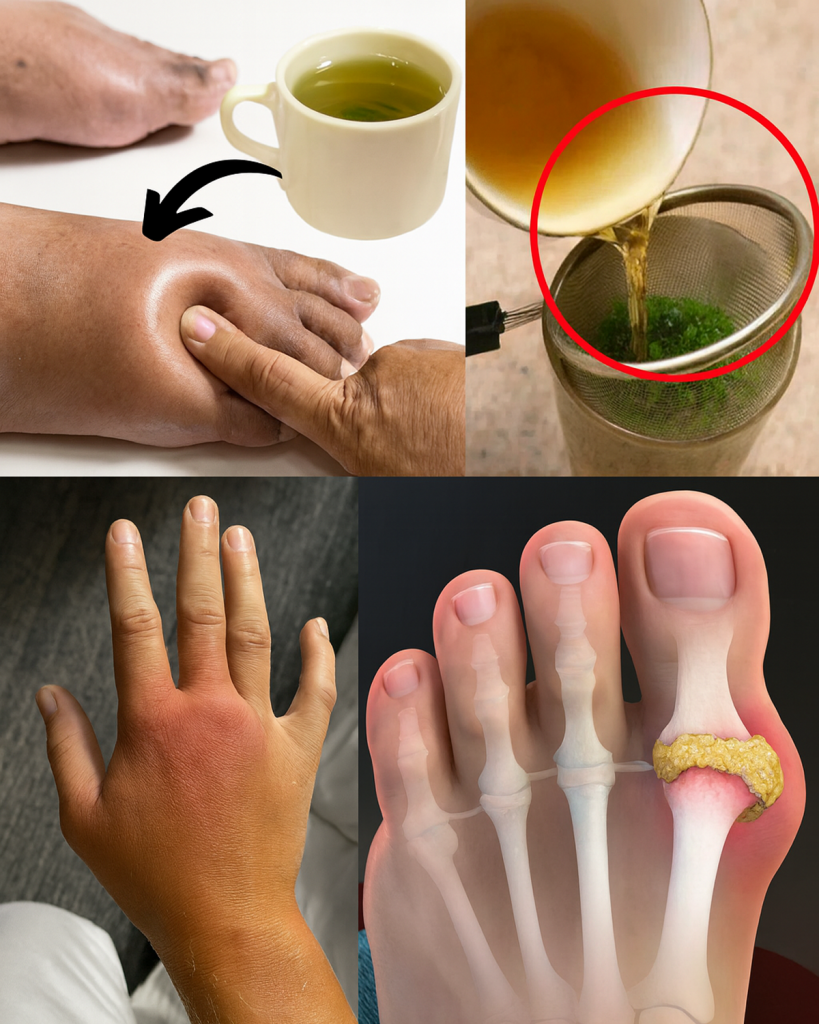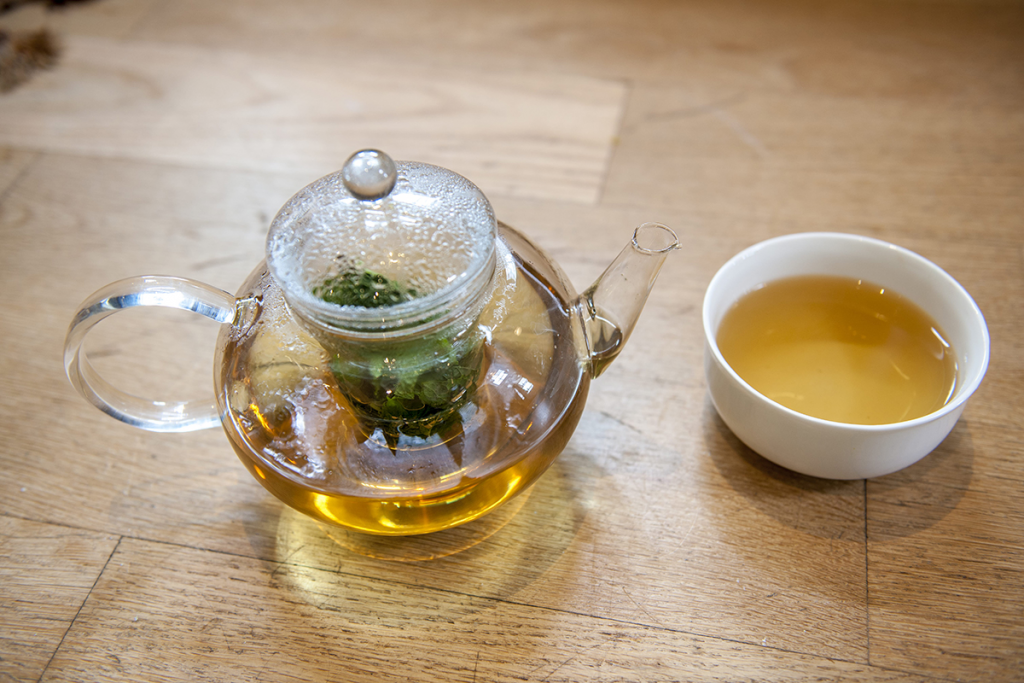Have you ever noticed your legs, ankles, or feet swelling after a long day at work or a long trip? You’re not alone—medical surveys estimate that 1 in 3 adults will experience fluid retention, also called edema, at some point in their lives. While occasional swelling may simply be due to standing or sitting too long, chronic edema can be uncomfortable and affect daily life. Modern medicine offers diuretics and compression therapy, but many people also look to natural remedies for everyday support. One of the most underrated solutions is parsley tea. This common kitchen herb, often used as garnish, is packed with antioxidants, vitamins, and natural compounds that act as a gentle diuretic to help reduce water retention. For centuries, parsley has been used in Mediterranean and Middle Eastern traditions to support kidney function, circulation, and digestion. In this article, we’ll explore how parsley tea may help relieve swelling, how to prepare it, real-life experiences, and practical tips to make it part of your wellness routine.

Why Do Legs, Ankles, and Feet Swell?
Before diving into parsley’s benefits, it’s important to understand the common causes of swelling.
Typical triggers include:
- Prolonged sitting or standing: Gravity causes fluid to pool in the lower body.
- High sodium intake: Salt makes the body hold onto extra fluid.
- Hot weather: Heat expands blood vessels, leading to more fluid retention.
- Poor circulation: Conditions like varicose veins or heart issues can contribute.
- Underlying health conditions: Kidney, liver, or heart problems may worsen edema.
Recognizing these triggers helps you make lifestyle changes while also incorporating natural support like parsley tea.

The Power of Parsley
Nutritional Profile
Parsley is loaded with vitamin C, vitamin K, iron, and powerful flavonoids. Its unique compounds, including apigenin and myristicin, contribute to its diuretic and antioxidant effects.
Key Benefits of Parsley Tea
- Natural diuretic: Encourages the body to release excess water.
- Kidney support: Assists natural detoxification.
- Anti-inflammatory properties: Reduces swelling and discomfort.
- Rich in antioxidants: Helps fight oxidative stress that affects circulation.
- Supports blood pressure balance: By reducing fluid retention, it may ease strain on the cardiovascular system.

| Benefit | How Parsley Helps |
|---|---|
| Reduce swelling | Flushes excess fluid from tissues |
| Circulation support | Antioxidants protect blood vessels |
| Kidney health | Encourages natural detox pathways |
| Anti-inflammatory | Soothes tissues and reduces puffiness |
How to Make Parsley Tea at Home
Basic Recipe
Ingredients:
- 1 cup fresh parsley leaves (or 2 tablespoons dried parsley)
- 2 cups water
- Optional: 1 teaspoon honey or ½ lemon for taste
Instructions:
- Wash parsley leaves thoroughly.
- Boil 2 cups of water in a pot.
- Add parsley leaves and simmer for 5–10 minutes.
- Strain and pour into a cup.
- Add honey or lemon if desired.
Tip: Drink one cup in the morning and one in the evening for best results.

Variations
- Parsley and Ginger Tea: Add a slice of ginger for circulation and warmth.
- Parsley and Lemon Detox Tea: Squeeze fresh lemon juice for added vitamin C.
- Iced Parsley Tea: Brew a strong batch, chill, and drink throughout hot summer days.
Real-Life Experiences
Case 1: The Office Worker
Susan, 42, often noticed swollen ankles after long days at her desk. After drinking parsley tea every evening for two weeks, she found her swelling reduced and her legs felt lighter.
Case 2: The Traveler
Mark, 58, struggled with swollen feet after long flights. He began drinking parsley tea before and after trips, and reported faster recovery and less discomfort.
Case 3: Family Tradition
In Mediterranean households, parsley tea has long been a daily ritual. Families drink it not only for reducing water retention but also for digestion and overall vitality.

Tips for Success with Parsley Tea
- Stay consistent—make parsley tea a routine rather than an occasional remedy.
- Combine with a low-salt diet to maximize results.
- Elevate your legs when resting to encourage circulation.
- Stay active—walking and stretching reduce fluid buildup.
- Always hydrate; paradoxically, drinking enough water helps prevent water retention.
Safety and Precautions
- Parsley tea is generally safe, but avoid excessive amounts.
- Not recommended for pregnant women in large doses, as parsley may stimulate uterine contractions.
- People with kidney conditions or on diuretic medication should consult a healthcare provider before use.

Conclusion
Parsley tea is a simple, natural, and affordable way to help reduce swelling in the legs, ankles, and feet. By acting as a gentle diuretic and circulation booster, it supports your body’s natural balance. Combined with a healthy lifestyle, parsley tea can be a powerful addition to your wellness routine.
FAQs in brief
- Can parsley tea cure edema? No, but it may help manage swelling naturally.
- How often should I drink it? 1–2 cups per day is common in traditional use.
- Can I use dried parsley instead of fresh? Yes, though fresh leaves offer more flavor and nutrients.
- Is it safe for everyone? Most people can enjoy it, but check with your doctor if you have chronic health conditions.
Disclaimer: This article is for informational purposes only and not a substitute for professional medical advice. Always consult a healthcare provider before using parsley tea as a remedy for swelling or other health issues.




